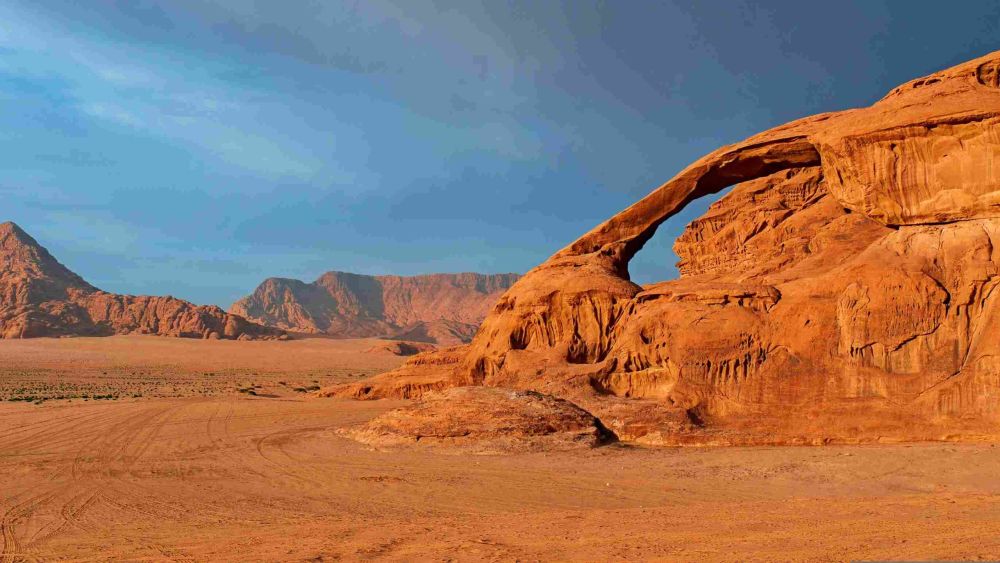

The area around Burdah Rock Bridge and Wadi Rum at large has a rich food history that dates back to the Bedouin tribes who have inhabited the region for centuries. The Bedouins are known for their hospitality and their unique, traditional cuisine that is heavily influenced by the arid desert environment. Food sources are often limited to what can be carried by nomads or can survive in desert conditions, hence the emphasis on preserved foods such as dried meats and grains.
Traditional Bedouin meals involve the use of simple ingredients, often consisting of herbs, grains, yogurt, and meats. The act of cooking is typically communal and done over an open fire, with dishes like Zarb, which is meat and vegetables slow-cooked in an underground pit, being a testament to the region’s unique cooking methods.
While there are no restaurants at the actual Burdah Rock Bridge due to it being a remote natural formation, Wadi Rum Village and its surrounding camps offer dining experiences for tourists:
Rum Stars Camp & Restaurant
Address: Wadi Rum Protected Area
Famous Food: Zarb (Non-Veg), a Bedouin specialty of meat and vegetables cooked underground.
Wadi Rum Night Luxury Camp
Address: Wadi Rum Protected Area
Famous Food: Traditional Bedouin buffet (Includes various dishes, both Veg and Non-Veg options available).
The Bedouin Meditation Camp Restaurant
Address: Diseh, Wadi Rum
Famous Food: Mansaf (Non-Veg), a rich and filling traditional Jordanian lamb dish.
Please note that addresses in Wadi Rum are often given as the name of the camp or the protected area since the region does not have a conventional street address system. Visitors typically arrange meals as part of their stay in desert camps or by booking ahead for a true Bedouin dining experience.